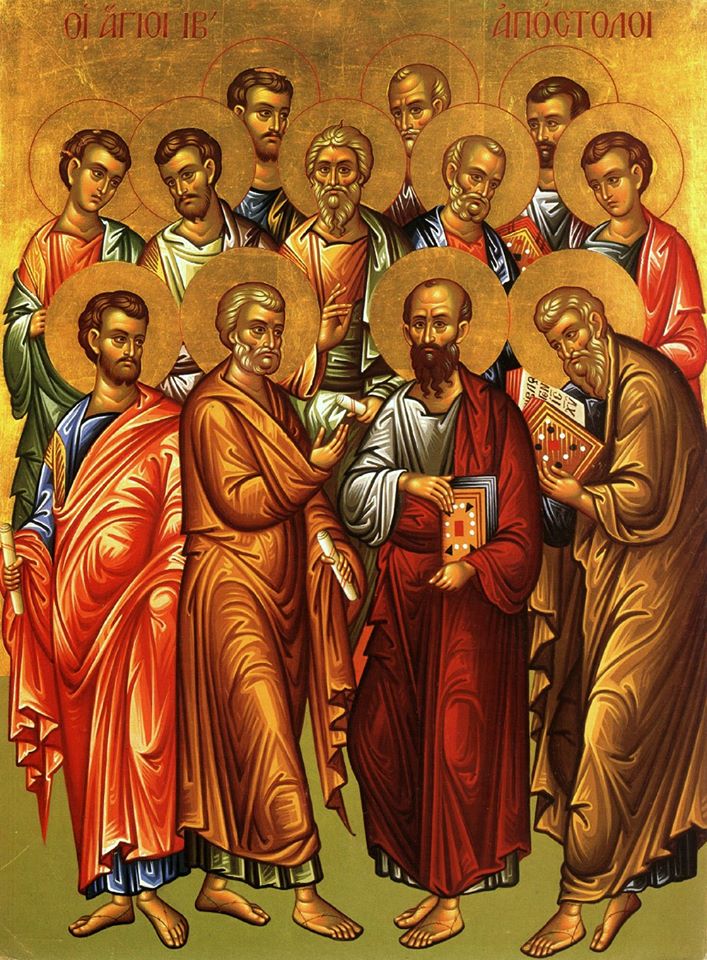Christ and the Apostles
The first century of the Christian era begins with the birth of Jesus Christ from the Virgin Mary in Bethlehem. Christ lived, preached, did mighty acts, was crucified, rose again, and ascended into Heaven in the first several decades of the first century. After His Ascension into Heaven, God sent the Holy Spirit upon Christ’s disciples on the Feast of Pentecost (Acts 2), empowering them to take Christ’s Gospel to the ends of the known world.

During His life on earth, Jesus selected disciples—first the Twelve (Mt 10.2–4) and then the Seventy (Lk 10.1). He trained them to be the leaders of His Church. After Pentecost, the Apostles preached the Gospel of Christ far and wide. We do not know exactly where all the Apostles traveled, but we know a good deal about the missionary journeys of Saint Paul, which are recorded in the Book of Acts (chs. 13–28). In his extensive travels Saint Paul founded many churches in Asia Minor and Greece. All the Twelve Apostles (including Saint Matthias, who took Judas’s place—Acts 1.15–26) except Saint John, as well as many of the Seventy, died as martyrs for their faith in Christ.
The Gospels and Epistles, and all of the 27 writings which the Church eventually selected to be the New Testament Scriptures, were written in the first century. Also in this time, Christian communities were established in the main cities of Syria, Asia Minor, Greece, and Egypt, and even as far as Armenia and India.
Because the Church in Antioch was growing so much, Saints Paul and Barnabas went there to preach and teach. It was there that the followers of Christ were first called Christians (Acts 11.19–30). Also, this Church sent forth Saints Paul and Barnabas on their first missionary journey (Acts 13.1). Antioch probably surpassed Jerusalem as the leading Christian center by the time the Christians fled from Jerusalem shortly before the outbreak of the Jewish Revolt against the Romans in 66 A.D.
The Church was also established in Rome. The natural prestige of the Church in Rome as the capital of the Empire was enhanced when the two greatest Apostles, Saints Peter and Paul, were both martyred there under Emperor Nero around 67 A.D. Their graves became important places of pilgrimage, and their common feastday (June 29) was established in the Church by the middle of the second century.
Though the first Christians were Jews, the early Christians wrote in Greek, the prevalent language in the Roman Empire. Even the Church in Rome used Greek until the beginning of the third century.
